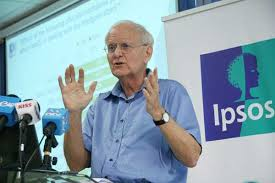Seminar: ‘A Criminal Investigation, Not a Political Analysis?' How the ICC Issue Sabotaged Democracy in the 2013 Kenyan Election
In the aftermath of the 2007-2008 post-election violence (PEV) that nearly shattered the integrity of the Kenya polity, Kenyans and the country’s main international partners were both determined to undertake the reforms needed to ensure that such a tragedy/crisis would never be repeated. With the finalization of its content and then the implementation of a new Constitution, these reforms included a complete overhaul of the country’s electoral management body and the ‘holding to account’ of those seen as most responsible for the earlier violence.
Accountability
Although a new election commission was in place by 2009 and the following (March 2013) election was largely peaceful, pursuing an agenda of accountability produced the opposite result to that intended, namely the political ‘marriage’ of the two principal suspects/defendants in the resulting and, as yet unresolved, ICC cases, and their subsequent triumph in the polls. This was particularly improbable given that the two individuals concerned – the now President Uhuru Kenyatta and his Deputy William Ruto – had been indicted for their alleged leading roles in the PEV but on opposite sides.
Complexity of arguments
This seminar will explain how this happened, using material from personal interviews, media reports and commentaries, and national survey research. It will be argued that the guilty vs. innocent dichotomy relevant to a criminal investigation fails to capture the complexity of the competing moral arguments that emerged and continue to reverberate through Kenya’s political communities. It will be suggested that the longer-term impact on national and regional politics and intra-societal relations will depend on factors beyond the formal outcome of these two ICC cases, not least the on-going use of state instruments to undermine them in the meantime.
Please note that this seminar is on a Monday and not on our usual Thursday.
Speaker
 Dr Wolf, who is currently serving as a Research Consultant/Analyst for the Public Affairs Department at IPSOS-Kenya, has a PhD in comparative politics from the University of Sussex (UK). He first went to
Dr Wolf, who is currently serving as a Research Consultant/Analyst for the Public Affairs Department at IPSOS-Kenya, has a PhD in comparative politics from the University of Sussex (UK). He first went to
Subject-matter of his published articles and book chapters include: (Kenya) Coast political history (2000), Kenya Afrobarometer surveys (2004, 2007), the accountability-immunity debate with regard to retired Kenyan president Daniel arap Moi (2006), the accuracy and political impact of political opinion/voter-intention polls in Kenya (2009), Kenya’s new constitution (2010), and the evolution and consequences of the ICC cases in Kenya’s 2013 election (2013).
The views expressed in this seminar are his own.

